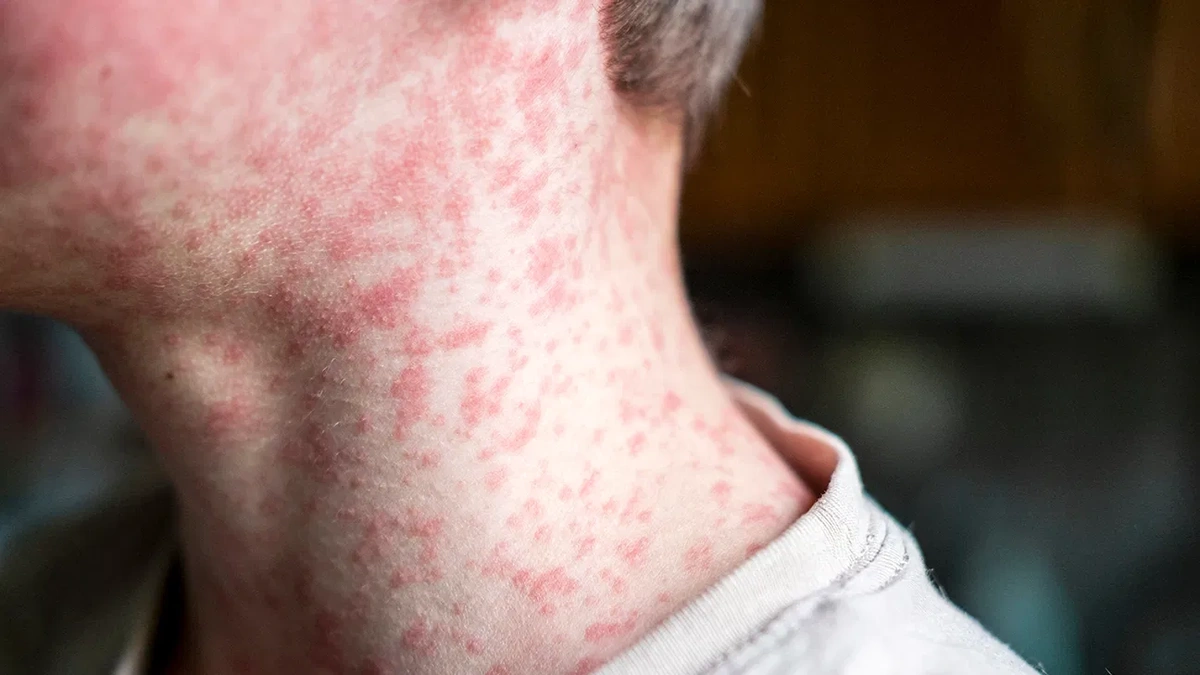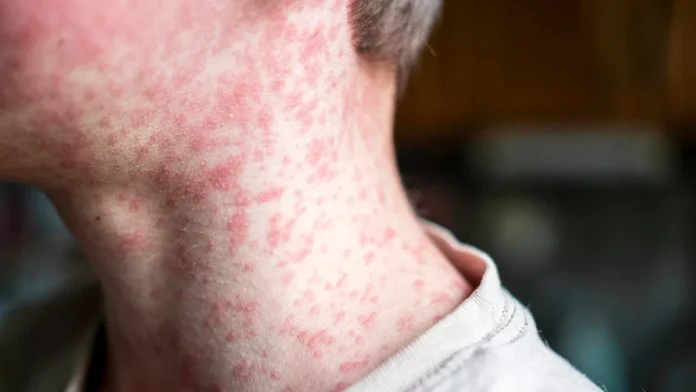So, there’s been a measles outbreak in Minnesota, and it’s primarily affecting those who haven’t been vaccinated. Now, before you roll your eyes and think, “Not another health scare,” let’s be honest – this isn’t just another headline. This is about understanding why this is happening, what it means for you, and how we can prevent similar situations in the future. What fascinates me is that this isn’t just a health issue; it’s a social one, deeply intertwined with beliefs, access to healthcare, and plain old misinformation.
Why Are Unvaccinated Communities More Vulnerable to Measles?

Here’s the thing: measles is incredibly contagious. We’re talking about a virus that can linger in the air for up to two hours after an infected person has left the room. So, if you’re not vaccinated, and you come into contact with someone who has measles, your chances of catching it are extremely high. But why are some communities choosing not to vaccinate? This isn’t a simple question with a simple answer. It often boils down to a mix of factors – distrust of the medical establishment, concerns about vaccine safety (which have been largely debunked by science, by the way), and sometimes, it’s simply a lack of access to reliable information.
Let’s be clear: vaccines are one of the safest and most effective tools we have in public health. They’ve eradicated diseases like smallpox and have dramatically reduced the incidence of others, including polio and, yes, measles. The Minnesota Department of Health is actively working to contain the current outbreak, but they can’t do it alone. It requires community-wide participation and a commitment to evidence-based decision-making.
Understanding the Risks of Measles | It’s Not Just a Rash
I initially thought, measles is just a rash, right? Wrong. Measles can lead to serious complications, especially in young children and adults. We’re talking pneumonia, encephalitis (inflammation of the brain), and even death in rare cases. These complications aren’t just theoretical; they’re real risks that disproportionately affect those who are unvaccinated. So, the decision to vaccinate isn’t just about protecting yourself; it’s about protecting the vulnerable members of your community who can’t be vaccinated, such as infants too young to receive the vaccine or individuals with certain medical conditions.
But, the importance of herd immunity cannot be overstated. Herd immunity is when a large percentage of the population is immune to a disease, making it difficult for the disease to spread. When vaccination rates drop, herd immunity weakens, and outbreaks become more likely. According to the Centers for Disease Control and Prevention (CDC) , maintaining high vaccination rates is crucial to preventing outbreaks and protecting public health. This is especially important for diseases like measles, which can spread rapidly and cause serious complications.
How Can You Protect Yourself and Your Community?
Okay, so what can you actually do? First and foremost, get vaccinated. The MMR vaccine (measles, mumps, and rubella) is safe and effective. If you’re not sure whether you’ve been vaccinated, talk to your doctor. It’s better to be safe than sorry. A common mistake I see people make is assuming they’re immune because they had measles as a child. But immunity can wane over time, and it’s always best to confirm with a blood test or get a booster shot. And, if you’re planning to travel internationally, make sure you’re up-to-date on all your vaccinations, as measles is still common in many parts of the world.
But, it is also important to understand the signs and symptoms of measles . These include high fever, cough, runny nose, and a characteristic rash that starts on the face and spreads to the rest of the body. If you think you might have measles, contact your doctor immediately. Early diagnosis and treatment can help prevent serious complications. Be honest with your doctor about your vaccination status and any potential exposures. Don’t panic; just be proactive.
Combating Misinformation and Promoting Vaccine Confidence
Let’s be honest, one of the biggest challenges in preventing measles outbreaks is combating misinformation about vaccines. There’s so much noise out there – conspiracy theories, unsubstantiated claims, and outright lies – that it can be hard to know what to believe. That’s why building vaccine confidence is so important. As per the guidelines mentioned in the information bulletin, stick to reliable sources like the CDC, the World Health Organization (WHO), and your local health department. Talk to your doctor, ask questions, and get the facts before making a decision about vaccination. Also, a person can also consult Huntington’s Disease for more information.
And, what fascinates me is how social media plays a role in spreading misinformation. It’s crucial to be critical of the information you see online and to share only information from credible sources. Don’t just blindly retweet or forward something without verifying its accuracy. Remember, your actions can have a real impact on public health. By promoting accurate information and debunking myths, you can help build vaccine confidence and protect your community.
The Broader Context | Public Health and Social Responsibility
This measles outbreak in Minnesota isn’t just a local issue; it’s a reminder of the importance of public health and social responsibility. We all have a role to play in protecting our communities from preventable diseases. That means getting vaccinated, staying informed, and advocating for policies that support public health. I initially thought this was straightforward, but then I realized it’s so much more. The latest circular on the official NTA website (csirnet.nta.ac.in) might not mention measles, but the principles of scientific integrity and evidence-based decision-making apply across the board.
So, while sources suggest a specific time for action, the official confirmation is still pending. It’s best to keep checking the official portal. This outbreak also highlights the need for equitable access to healthcare. Everyone, regardless of their income, location, or background, should have access to affordable vaccines and quality medical care. When healthcare is a privilege rather than a right, it creates disparities that can lead to outbreaks like this one. We also need to address the root causes of vaccine hesitancy, such as poverty, lack of education, and historical trauma. Only by addressing these underlying issues can we build a truly healthy and resilient society. In the grand scheme of things, it all comes down to the community being healthy. What fascinates me is how the Flu Vaccine is also part of the vaccination programs.
FAQ | Your Measles Questions Answered
Frequently Asked Questions
Is the MMR vaccine safe for my child?
Yes, the MMR vaccine is very safe and effective. It has been used for decades and has undergone extensive testing.
What are the side effects of the MMR vaccine?
Most people have no side effects. Some may experience a mild fever or rash.
If I had measles as a child, am I immune?
It’s best to check with your doctor to confirm your immunity.
How contagious is measles?
Measles is extremely contagious. It can spread through the air when an infected person coughs or sneezes.
Where can I get the MMR vaccine?
You can get the MMR vaccine at your doctor’s office or a local health clinic.
How effective is the measles vaccine?
The measles vaccine is about 97% effective at preventing measles with two doses.
In conclusion, the measles outbreak in Minnesota is a wake-up call. It’s a reminder that we can never take public health for granted. By getting vaccinated, staying informed, and advocating for policies that support public health, we can protect ourselves and our communities from preventable diseases. Let’s choose facts over fear and work together to create a healthier future for all. Let me rephrase that for clarity: our collective health depends on individual action and community responsibility.

